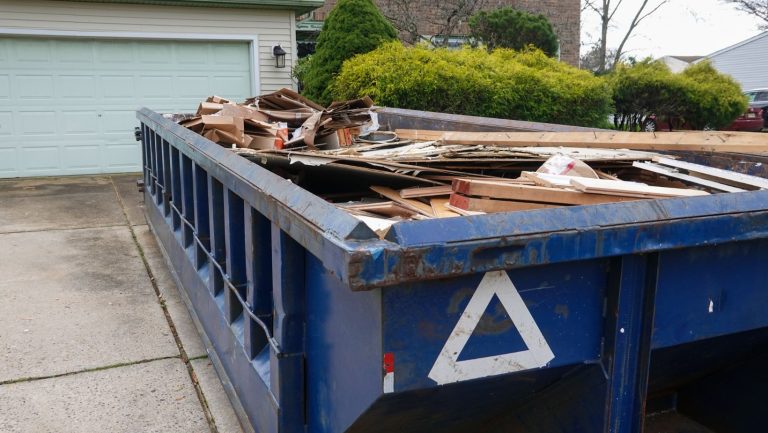A roll-off container is a great way to go when it comes to waste disposal. These bins are easy to use and can be rented for short or long periods, making them perfect for various projects. But just like any other form of disposal, there are rules and guidelines regarding what should – and shouldn’t – be placed inside these containers. That’s why we’ve put together this list of do’s and don’ts on the items which should always enter into these bins – or never enter into them at all! Keep reading for more so you know exactly how to make the most of your roll-off container.
What Can Be Placed Into a Roll-Off Container
First, let’s talk about what can be placed into a roll-off container. Generally speaking, the following items are safe and can be disposed of in one of these bins:
#1. Household Waste
Household waste is safe to place into a roll-off container. This includes furniture, clothing, toys, books, and small appliances. However, these items should be broken down as much as possible to limit the amount of space they take in the bin.
#2. Construction Debris
Construction debris such as wood, drywall, lumber, shingles, pipes, and tile can all be placed into a roll-off container for disposal. Any metal construction materials should also be separated from other debris before being placed in the bin.
#3. Yard Waste
Yard waste, such as grass clippings, leaves, and small branches, is okay to put into a roll-off container. Larger branches and tree stumps should be broken down or cut into smaller pieces to make them easier to dispose of.
What Should Not Be Placed Into a Roll-Off Container
It’s important to note that certain items should never enter into a roll-off container. These include:
#1. Hazardous Materials
Hazardous materials such as chemical products, paints, oil, gasoline, and asbestos should never be placed in a roll-off container. They can contaminate the environment and cause serious health risks if mishandled. Always check with your local waste management department for information on properly disposing of these materials.
#2. Electronic Devices
Electronic devices such as computers, televisions, and cell phones should also never be placed into a roll-off container. Many of these items contain toxic chemicals that can leach into the environment if not properly disposed of. Always check with your local waste management department for information on how to recycle or dispose of these types of items correctly.
#3. Automotive Parts
Automotive parts such as tires, batteries, and car fluids should never enter into a roll-off container. These materials can contain hazardous chemicals which can damage the environment if released into them. Just like hazardous materials, you should contact your local waste management department for information on how to recycle or dispose of these types of items properly.
The Benefits of Roll-Off Containers
Roll-off containers are a great way to quickly and easily dispose of waste. They can be used for projects ranging from small home renovations to large construction sites and can save you money in the long run. Plus, they can help keep your community clean by preventing items from entering into our landfills which may not being disposed of correctly.
By following these do’s and don’ts, you’ll ensure that your roll-off container is used safely and efficiently. You’ll also help protect our environment by disposing of household, construction, and yard waste properly!
Contact Georgian Waste Services today to request a quote if you require a roll-off container. With our wide selection of containers and competitive pricing, we can help you find the perfect solution for your disposal needs. Give us a call today, and let us show you how easy and efficient it can be to dispose of waste with roll-off containers!
